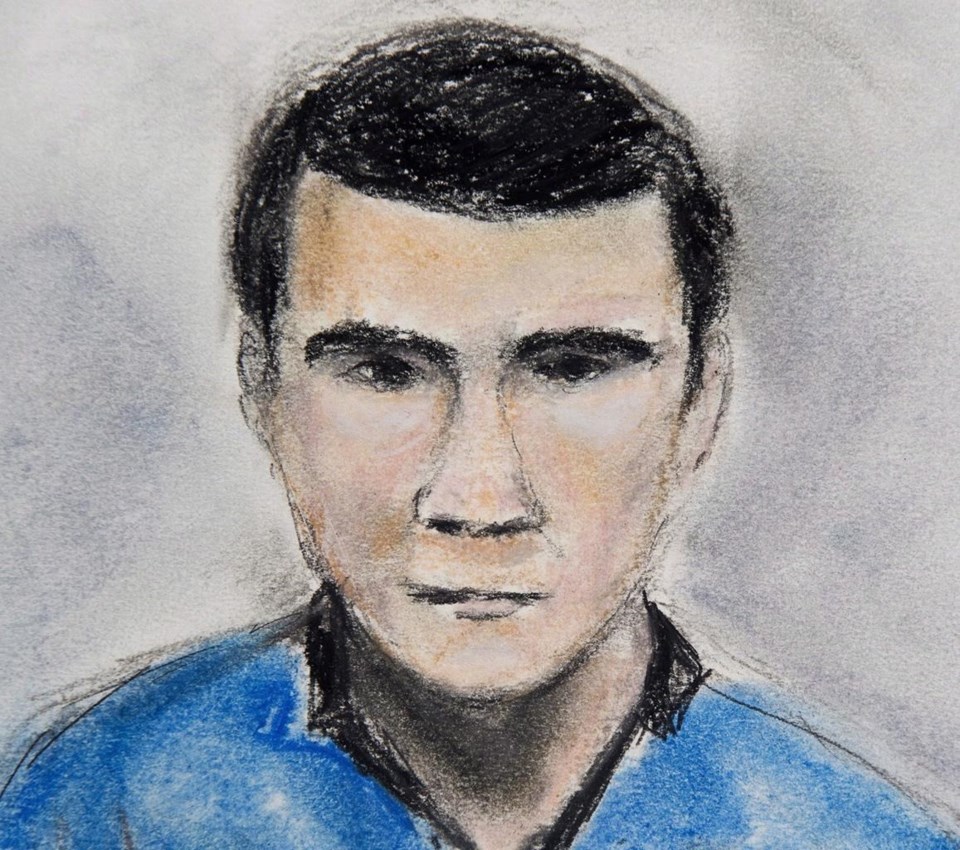EDMONTON ÔÇö A review board assessing the case of a man found not criminally responsible for killing five young people at a Calgary house party was told Thursday that granting him an absolute discharge could come with risks.
An annual hearing before the Criminal Code Review Board assesses Matthew de Grood's treatment and whether he should be allowed any increased privileges or freedoms.
De Grood was found not criminally responsible for the 2014 stabbing deaths of Zackariah Rathwell, Jordan Segura, Kaiti Perras, Josh Hunter and Lawrence Hong. 
Court determined he had been living with undiagnosed schizophrenia at the time and he has since been under psychiatric care. 
The hearing was told that de Grood's schizophrenia is in complete remission but requires two medications to keep it in check.
His psychiatrist, Dr. Oghogho Manuwa, said de Grood had several two-week unescorted passes from an Edmonton group home over the last year to visit his parents in Calgary and there were no incidents.
He said the young man, who was 22 at the time of the attack, is at a low risk to reoffend but if he does have another episode, other factors can come into play with a "complex forensic patient."
"There is the risk that speaks to the chances of him reoffending in any way and that is low. Then there is seriousness which would be, should he offend how serious would it be. And that is high," Manuwa said.
"The particular risk that we are talking about ... doesn't happen every day. You still need more information."
Manuwa said de Grood has been prone to episodes of anxiety and in many ways hasn't really opened up to his Edmonton treatment team.
"I think it's fair to say in general Mr. de Grood's engagement with the treatment team is superficial. He doesn't really talk to us much about what's going on in his inner world," he said.
"We do not think we know him because he's not talking to us."
De Grood was given an opportunity to address the board and the families of the victims at the end of the hearing. He said it's never easy because he has to revisit 2014 and the pain it caused but promised he would commit himself to remaining well.
"I want to make it clear today that I have no desire to inflict any more pain on the victims' families and I'm very sorry if my appeals have added to their suffering," he said. 
"I respectively ask that the review board consider an absolute discharge for me now. I would also like to be considered for conditional discharge that would allow me to live back home with my parents."
De Grood's lawyer, Jacqueline Petrie, wanted her client to be given an absolute discharge considering he's not a danger to the public. 
"Matthew de Grood is and has been a model patient. For almost a decade now, he has shown a complete and unwavering commitment to treatment and rehabilitation," she said and expressed sympathy for the families of the victims.
"Trials and hearings and appeals don't fix broken hearts or shattered futures or lives back together again. The law can be a very cold and blunt instrument and I am sorry for that, but that is the arena in which we find ourselves."
Dr. Sergio Santana, a forensic psychiatrist who originally was in charge of de Grood's treatment team while he was in Calgary, has returned as his doctor and supported him returning to Calgary.
But he said it would have to be under a full warrant that would allow immediate supports if he was to have another instance of "decompensation" like he did in 2019 and 2021.
"Transitions sometimes go wrong and it would be important for us to keep a close eye on him. This is not personal toward Mr. de Grood. When people transition from Edmonton to Calgary, we usually prefer them to be on a full warrant," Santana said.
"It's important that we act quickly and pre-emptively and a full warrant would allow us to do that and I don't think it would be costly to Matthew from a clinical perspective, he has ample room to grow over the next reporting period."
Victim impact statements were read into the record by the families of those killed by de Grood.
Gregg Perras, the father of Kaiti Perras, said he's been undergoing panic attacks and is seeking grief counselling.
"My daughter Kaiti is dead," he said.
"Please have some empathy for the families who lost their children and do not try to tack on to their grief with this review process. We will fight back for our children who can no longer speak for themselves."
Kelly Hunter said a day doesn't go by that she doesn't wish it could have been her who died rather than her son Josh.
"It breaks my heart over and over that he can't be here. Those of us who are left here to flounder in our heartache and our thoughts of what could have been. We are also the victims."
The board will release its decision at a later date.
ÔÇö By Bill Graveland in Calgary
This report by The Canadian Press was first published Nov. 2, 2023.
The Canadian Press



